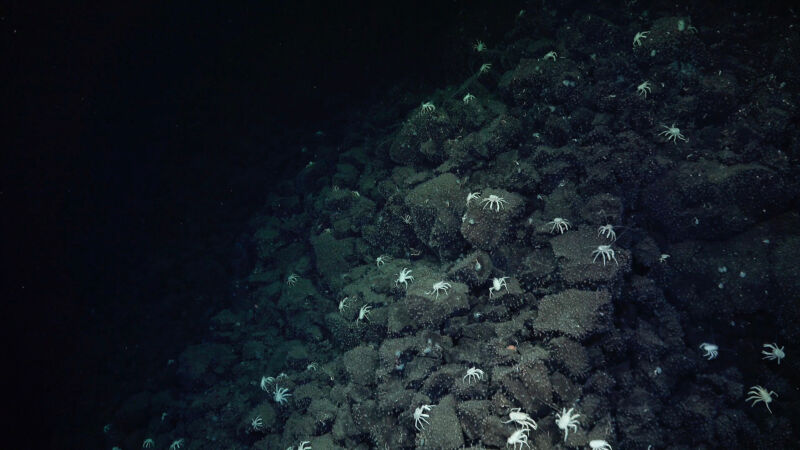Otherworldly mini-Yellowstone found in the deep sea

Enlarge / “Leading us like breadcrumbs…” A trail of squat lobsters helped researchers locate previously unknown hydrothermal vents. The hydrothermal vents create chemosynthetic ecosystems, so in areas that are mostly barren of life, the appearance of larger animals can be an indicator of vents nearby. (credit: Schmidt Ocean Institute)
Spectacular scenery, from lush rainforests to towering mountain ranges, dots the surface of our planet. But some of Earth’s most iconic landmarks––ones that may harbor clues to the origin of life on Earth and possibly elsewhere––lay hidden at the bottom of the ocean. Scientists recently found one such treasure in Ecuadorian waters: a submerged mini Yellowstone called Sendero del Cangrejo.
This hazy alien realm simmers in the deep sea in an area called the Western Galápagos Spreading Center––an underwater mountain range where tectonic plates are slowly moving away from each other. Magma wells up from Earth’s mantle here to create new oceanic crust in a process that created the Galápagos Islands and smaller underwater features, like hydrothermal vents. These vents, which pump heated, mineral-rich water into the ocean in billowing plumes, may offer clues to the origin of life on Earth. Studying Earth’s hydrothermal vents could also offer a gateway to finding life, or at least its building blocks, on other worlds.
The newly discovered Sendero del Cangrejo contains a chain of hydrothermal vents that spans nearly two football fields. It hosts hot springs and geyser chimneys that support an array of creatures, from giant, spaghetti-like tube worms to alabaster Galatheid crabs.




